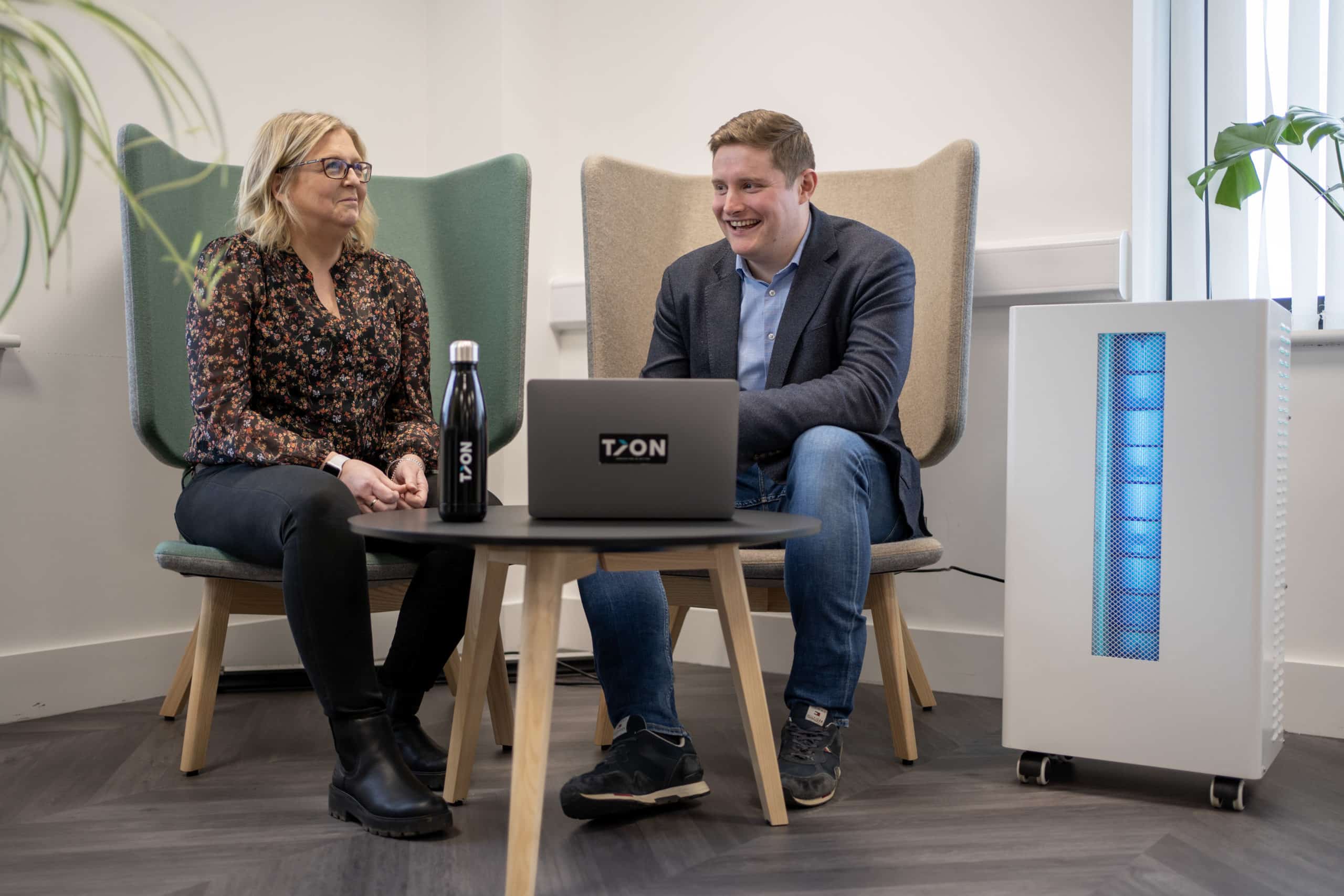
Air quality has been a hot topic over the last couple of years due to the global pandemic that is still gripping the world. But with more and more individuals and businesses realising its importance, the demand for more purified air has increased greatly. That said, many people still don't fully understand what a device like an air purifier is or how they work. There are many misconceptions and myths out there about air purification units, and today we are here to set the record straight.
A lot of people believe that if there are bad smells in the air, then that means the air isn’t being purified. The truth is this all depends on the type of device you are using. Purifiers with a HEPA filter work to remove pollutants from the air, but have no impact on foul odours. This means you could have clean, quality air and unpleasant smells will still linger.
Equipment which uses an activated carbon filter will generally remove odours and gas from the air as well as pollutants. If your business has this type of air purifier and you still notice odours, then it is probably time you change your carbon filter.
If your premises have air conditioning, you might assume you don't need a purifier as well. The fresh, cold breeze from air conditioning might feel clean, but this is more of an illusion than a fact.
Air conditioning equipment often has dark and moist units, sometimes with standing water, making them the perfect conditions for mould and bacteria to flourish. These cooling systems work by redistributing the same air time and time again, which could potentially be spreading harmful pollutants throughout the building. Even AC units with a filter in place are not actually filtering the air. The filters work to prevent dust from getting into the system, as opposed to purifying.
Sceptics out there are quick to state that devices which purify the air do not work or do not do anything at all. It is perfectly normal for these units to stay completely quiet and still during operation, which makes it easy to believe that nothing is happening.
Even medical grade purifiers can clean the air of a large area without any sound or motion, but they are still working hard to remove pollutants.
Air purifiers with a HEPA H14 filter can remove over 99.997% of particulate that are at least 0.3 microns in size. This means dust, smoke, mould, bacteria and some viruses are all removed from the air silently. There are actually devices in the market, such as the Viralair-UV™, that utilise UV light safely contained within the unit to kill pathogens if you want to go that one step further. Learn more about the differences between purifiers and sterilisers, here.
If you want to check that your purifier is working though, put the back of your hand close to where the device lets the air out. If you can feel a gentle breeze, then it is working as planned.
Many businesses invest in an air purifier and assume that is all they need to do. However, this piece of kit uses filters to clean the air, and when the filters become full, they cannot operate properly. Ignoring this aspect can essentially make the equipment useless, as it can no longer trap the particles in the atmosphere.
In fact, running a purifier with clogged filters will slow it down and force it to work even harder, which will ultimately reduce its life expectancy. For most machines, the HEPA filter will need to be changed every 6 months to keep them working properly, which to be honest, isn’t an issue you have with UV-C air sterilisers, as they don't have any filters that need changing regularly, or require specialist decontamination.
In industrial settings, many people become concerned that an air purifier won't work effectively because of open windows, doors and large spaces. These clever units will work if windows are open or not, and usually the outdoor air is less polluted than the air indoors.
If you are in a highly polluted city, having windows open when running an air purifier might cause it to work a little bit harder, but it will still be purifying the air.
One common myth we hear time and time again is that air quality doesn’t matter. In actual fact, poor quality air can result in various health problems including irritation of the eyes, throat and nose, fatigue, heart disease and even cancer.
When people are spending the majority of their time indoors, at work or at home, the quality of the air they breathe is vital. An air purifier or sterilisation unit are effective ways of improving air quality and maintaining a healthy environment indoors.
For more information on how air purification and filtration technology can help you breathe easier, get in touch with us today.
Read our Privacy Policy for more information on how we collect and process data.



No thank you
Read our Privacy Policy for more information on how we collect and process data.